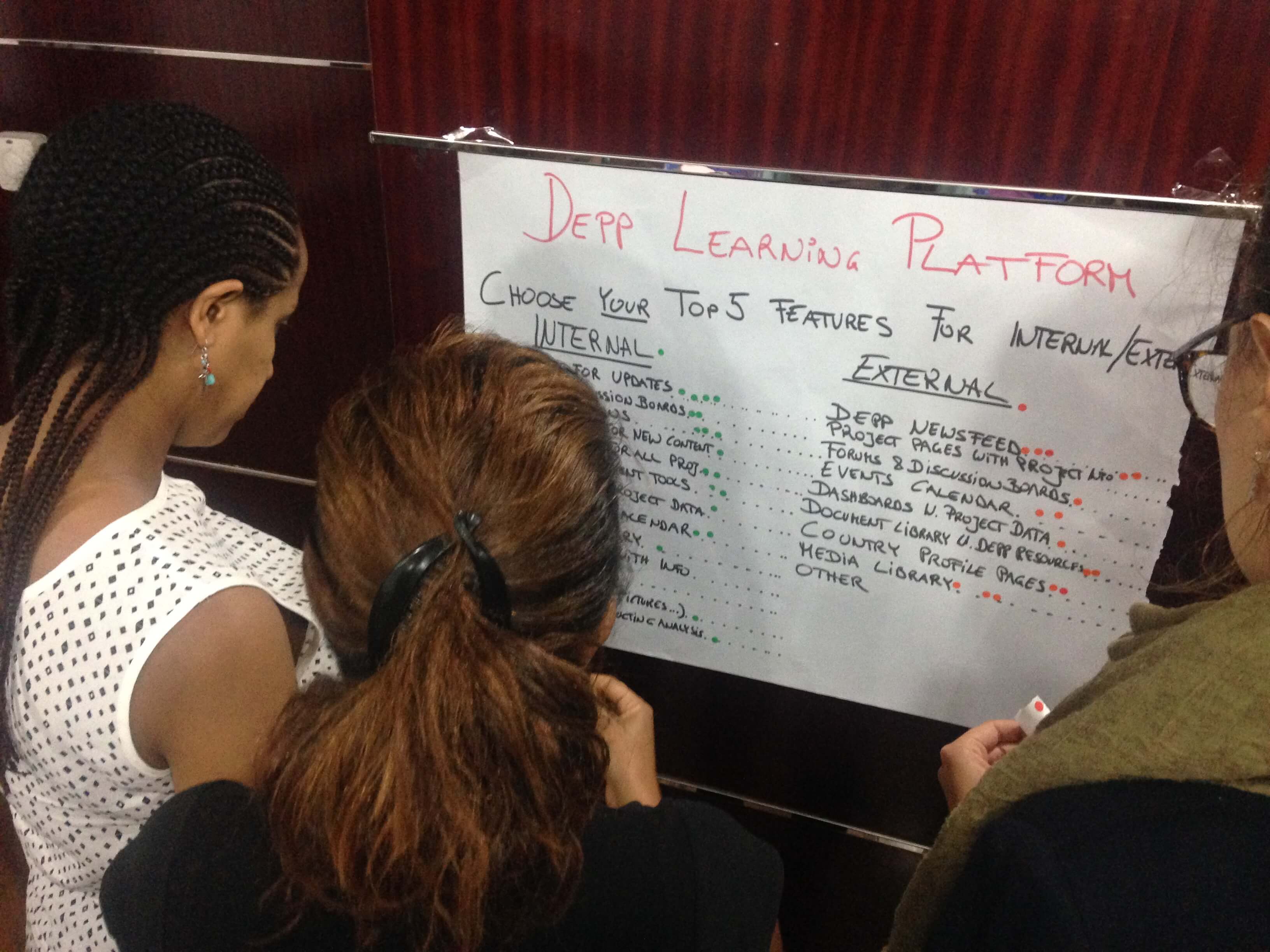Helen Asnake, Regional Learning Adviser for Middle East and Ethiopia, Disasters and Emergencies Preparedness Programme, on the recent learning hub event in Ethiopia.
Last week we held a Learning Hub event in Ethiopia for the Disasters & Emergencies Preparedness Project (DEPP). This was the second event of its kind in the region and brought together DEPP project leads, consortium partners, government partners and also private consultants.
Organised by the DEPP Monitoring Evaluation and Learning (MEL) project, which is establishing global learning hubs to enable partners from across the 14 DEPP projects come together to learn from each other around different aspects of crisis preparedness. In this way lessons from the DEPP projects and other similar work can be shared and documented to inform better programming and design.
Learning can happen in many different ways, so in addition to the learning hubs there will be a DEPP online learning and collaboration platform for partners to have access to information and share learning.
The learning hubs give a space for partners to discuss the Disasters and Emergencies Preparedness Programme (DEPP) and it was great to see partners from all different corners coming together to learn from each other.
What do we mean by learning?
At our first learning hub meeting in Addis Ababa, MEL team manager Christina Haberl facilitated a discussion about learning, here is my summary.
- Learning is closely linked to evidence and should also be linked to action
- Sometimes there is a lack of learning even if we have the evidence
- Learning is always different and may not be same for everyone
- How are we going to use learning and who are we going to influence with learning?
- Learning gives discomfort to many of us
- How can we effectively share learning across countries and projects?
People approach learning in so many different ways, and in order to know what is learned and how it was useful we need to document our experiences of learning.
Challenges to learning
We often don’t know what we’ve learned and even if we do, we don’t see the value of sharing, because we don’t have the time, resources or motivation. We end up delivering and reporting on our projects without taking the time to reflect or prioritise learning. When learning does happen, however, we often see progress and new ways of doing things. Sharing what worked and didn’t work is relevant to help others shape their project or programme design in better and more effective ways.
How to build a holistic programme
The DEPP consists of 14 different projects across 10 different countries contributing to five results areas - all the projects contribute to these results in one way or the other. It was interesting to hear from participants what this design looks like in their view. Many people asked why it is made up of so many “fragmented projects”, and why is it not a ‘holistic programme’ with one concrete goal and time frame? Participants in the learning hub discussed that in order to avoid this sense of programme fragmentation we need collaboration. Each project could complement each other better if they collaborate more.
Embedding learning in our monitoring and evaluation
What I took from partners’ presentations at the meeting is that people are tired of reporting numbers and figures. Numbers do not tell the story and the impact. Striking a balance between qualitative and quantitative data will help us gather evidence. As Mulugeta Worku, the senior program manager for BRACED, said very well: “we learn from processes, we learn from results and also we learn from testing different methodologies”. Documenting and sharing these types of lessons, rather than just numbers, would help with effective programme delivery. Learning should also be part of our monitoring and evaluation systems and tools, which should draw on stories and qualitative data to document the impact and changes brought as a result of project interventions.
A little bit about preparedness in Ethiopia
Ethiopia is affected by rainfall variability and climate extremes. Drought has been a major recurring disaster for centuries. However, as stated by Dr. Edmealem, an IGAD representative, “Drought is not an emergency, it is a situation which we can be prepared for.” Therefore the solution is not managing the emergency, but managing the risks and building the capacity of the community to be prepared. The DEPP projects in Ethiopia, including the Improved Early Warning - Early Action project and Public Health Emergency Preparedness project work on disaster preparedness in Ethiopia by strengthening the capacity of the government and local actors to be prepared before disaster strikes and to respond to manage emergencies when they happen.
Next steps
The event was a success and partners expressed interest in participating in future learning hub meetings and international conferences.
Next steps will include working with other preparedness projects like BRACED in Ethiopia and strengthening collaboration between DEPP projects and other networks and coalitions. Our plan is to have our next learning hub meeting in October, to which we will invite other humanitarian agencies and government partners. In the meantime we will continue to document lessons and learning!
Find more about Disasters and Emergencies Preparedness Programme.

